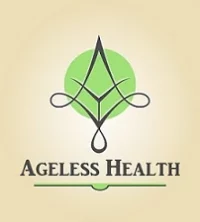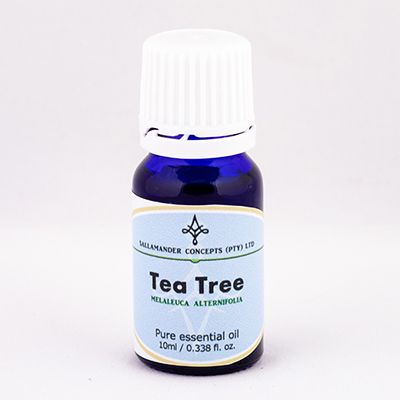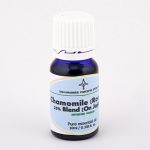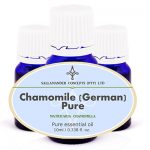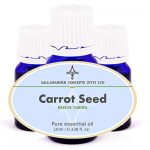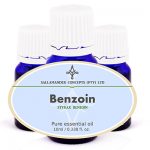Information on Tea tree essential oil
Tea tree essential oil is extracted from Melaleuca alternifolia of the Myrtaceae family and is also known as ti-tree, ti-trol and melasol.
This oil must be one of the most used essential oils, and thousands of people swear by its wonderful healing properties, and we offer you the BEST quality available – anywhere in the world.
No house should be without Tea Tree Essential oil, as it is one of the most powerful immune system stimulants and sorts out most viral, bacterial and fungal infections in a snap, while it is great to clean wounds and also relieves muscle aches and pains.
Oil Properties
Tea Tree Essential Oil has a light spicy, rather pungent smell and is very pale in color with a watery viscosity.
Origin
It is a small tree from New South Wales in Australia, similar to Cypress, with needle-like leaves and heads of sessile yellow or purplish flowers and grows to about 7 meters (20 feet) high and thrives in marshy areas, though it is now cultivated in plantations.
Even when this tree is cut down, it flourishes and is ready for cutting again in two years.
The oil produced in Australia is used by the Aborigines for a variety of medicinal purposes. In World War II, the producers and the cutters were exempt from military service until enough essential oil had been accumulated.
Each soldier and sailor was issued with some as part of their kit, to treat tropical infections and infected wounds.
Tea tree oil is an ingredient of soaps, creams, lotions, deodorants, disinfectants and air fresheners.
Extraction
It is extracted from the leaves and twigs by steam distillation and the yield is about 1.8%.
Chemical Composition
Some of the main chemical components of tea tree oil (also referred to as ti-tree oil) are Terpinen-4-ol, γ-terpinen, 1.8-Cineole, α-Terpinene, α-Terpineol, ρ-Cymene
Our tea tree oil surpasses the “Austrian Standard” which demands that the oil must contain less than 15% 1,8-ceneole and more than 30% terpinen-4-ol.
Precautions
Tea tree essential oil is considered to have a low risk of causing skin sensitivity. The oil can oxidise easily and oxidised oil will have a high risk of causing skin sensitivity.
This essential oil should be kept in a dark and cool place and should be stored in a airtight, dark glass bottle (Preferably in the fridge at a temperature of around 4° Celsius / 39° Fahrenheit).
Please read our page with heading: Safety with Essential Oils before using this oil.
We recommend the following book as an excellent resource regarding safety:
Essential Oil Safety: A Guide for Health Care Professionals by Robert Tisserand & Rodney Young (#ad)
Therapeutic properties
The therapeutic properties of tea tree oil are antimicrobial, antiseptic, antiviral, balsamic, bactericide, cicatrisant, expectorant, fungicide, insecticide, stimulant and sudorific.
For our glossary and explanation of these therapeutic terms, please click here
Uses
Tea tree essential oil is very important in the health of the immune system, as it acts as a immuno-stimulant and increases the body’s ability to fight off any infections, while it also is used to revive the mind and body after shock.
The world over, this oil is used with great effectiveness to ward of infections of any kind, and it is active in all three varieties of infectious organisms: bacteria fungi and viruses.
It can help with influenza, cold sores, catarrh, glandular fever and gingivitis.
A course of massage with tea tree oil before an operation may help to fortify the body and reduce post-operative shock.
Apart from the superb anti-infectious properties of tea tree oil, it is also most effective to help clear bronchial congestion, asthma, coughs, sinusitis, whooping cough and tuberculosis.
On the genito-urinary system, it can be used to help clear vaginal thrush, cystitis and genital infections in general.
On the skin, it clears abscesses, acne, burns, herpes, oily skin, athlete’s foot, cold sores, blemishes, diaper rash, warts, sunburn and infected wounds, while fighting dandruff on the scalp.
Burners and vaporizers
Tea Tree essential oil is useful to treat respiratory ailments and is also of use to help the mind cope after shock.
Blended in Massage Oil or in a Bath
As a blended massage oil or diluted in the bath, tea tree oil helps with all respiratory ailments, as well as arthritis, colds, dermatitis, skin infections, scalp disorders, sinusitis, viral infections, nettle rash, babies colds and coughs, bronchitis, as well as for sweaty feet.
In a Wash or Applied Neat
Tea tree oil can be applied neat to small problem areas with a cotton bud (ear-bud or Q-tip).
Fungal outbreaks such as athlete’s foot and nail infections (paronychia) as well as vaginal thrush and cradle cap can be treated with tea tree oil.
Please remember that it is a powerful essential oil, and the neat application onto the skin must be done rarely and with care.
Mouthwash
Tea tree essential oil can be used as a mouthwash for gum infections, mouth ulcers, throat infections and tonsillitis, while garlic eaters believe that it reduces the smell of garlic on the breath – Although we know that the oil will definitely benefit an infectious problem, we are unsure of the success with the smell of garlic.
Blended in a Cream
When tea tree oil is blended into a cream or lotion and applied to the skin, it will help to clear up any fungal, bacterial as well as viral infections – and can therefore be used for a variety of problems – ranging from boils, abscesses, acne, dandruff and other scalp disorders. It is also effective to help sort out bed sores, diaper rash or any other rash.
Suggested Dilution Rates
On the skin
Adult:
Face: 0.5% to 1.5%
Body: 1.5% to 3%
Bath: 1.5% to 4%
3 to 24 months:
Face: Maximum of 0.25%
Body: Maximum of 0.25%
Bath: Maximum of 0.25%
2 to 6 years:
Face: 0.25% to 0.5%
Body: 0.25% to 0.5%
Bath: 0.25% to 0.5%
6 to 15 years
Face: 0.5% to 1.5%
Body: 0.5% to 2.5%
Bath: 0.5% to 2.5%
Pregnancy
Face: 0.5% to 1.5%
Body: 0.5% to 2%
Bath: 0.5% to 2%
- When in doubt consult your doctor / medical professional before use.
- Most professionals and/or Aromatherapists will always err on the side of safety when giving advice regarding the use of essential oils and oleo resins during pregnancy.
- Quite a number of Aromatherapists advise that you should avoid all essential oils completely while pregnant, specifically during the first trimester. This is a very safe approach but may not be necessary at all.
Diffusers and Vaporisers
4 to 8 drops
General:
- When using for the first time – Always use the lowest dilution rate and build up slowly to the maximum. Stop using all essential oils on the skin if irritation or allergy occurs.
- Any advice or instruction received from a medical professional ALWAYS supersedes recommendations or advice found on this website. When in doubt consult your doctor / medical professional.
Blends
Although essential oils normally blend well together, tea tree oil blends particularly well with Cinnamon, Clary Sage, Clove, Geranium, Lavender, Lemon, Myrrh, Nutmeg, Rosewood, Rosemary and Thyme
